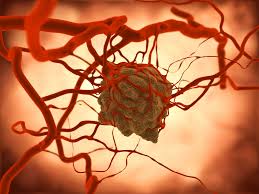Cancer cells usually exhibit aberrant cell signaling and metabolic reprogramming. However, mechanisms of crosstalk between these processes remain elusive. Here, we show that in an in vivo tumor model expressing oncogenic Drosophila Homeodomain-interacting protein kinase (Hipk), tumor cells display elevated aerobic glycolysis. Mechanistically, elevated Hipk drives transcriptional upregulation of Drosophila Myc (dMyc; MYC in vertebrates) likely through convergence of multiple perturbed signaling cascades. dMyc induces robust expression of pfk2 (encoding 6-Phosphofructo-2-kinase/fructose-2,6-bisphosphatase; PFKFB in vertebrates) among other glycolytic genes. Pfk2 catalyzes the synthesis of fructose-2,6-bisphosphate, which acts as a potent allosteric activator of Phosphofructokinase (Pfk) and thus stimulates glycolysis. Pfk2 and Pfk in turn are required to sustain dMyc protein accumulation post-transcriptionally, establishing a positive feedback loop. Disruption of the loop abrogates tumorous growth. Together, our study demonstrates a reciprocal stimulation of Myc and aerobic glycolysis and identifies the Pfk2-Pfk governed committed step of glycolysis as a metabolic vulnerability during tumorigenesis.







